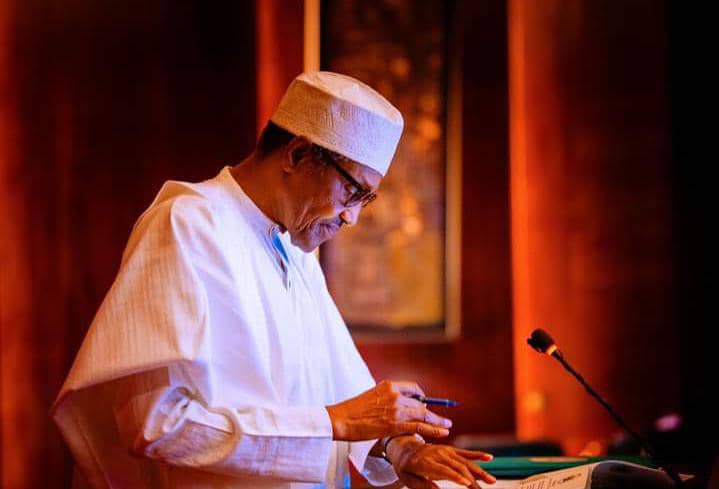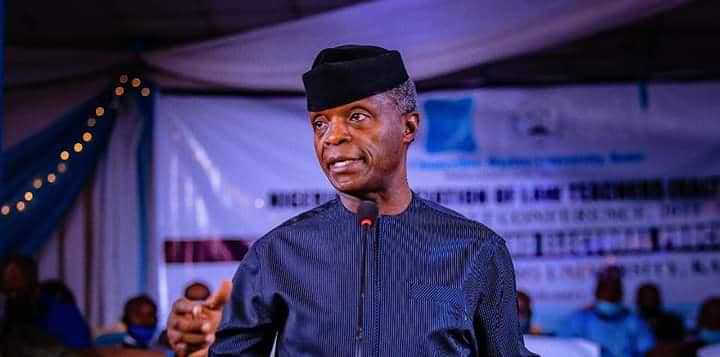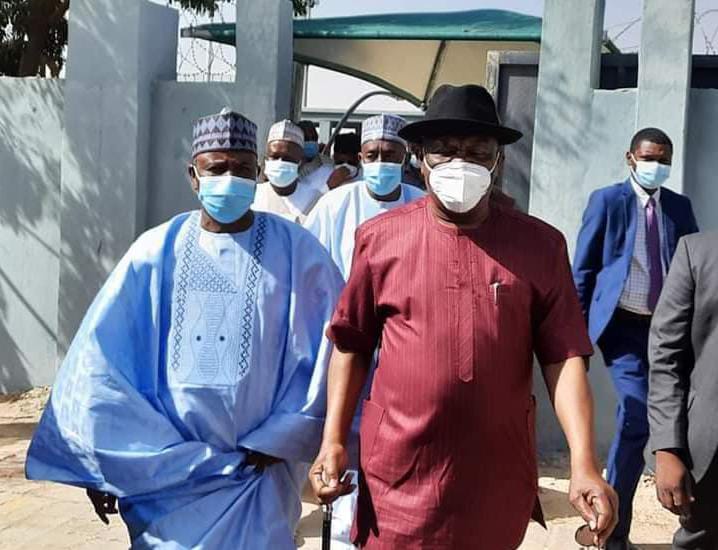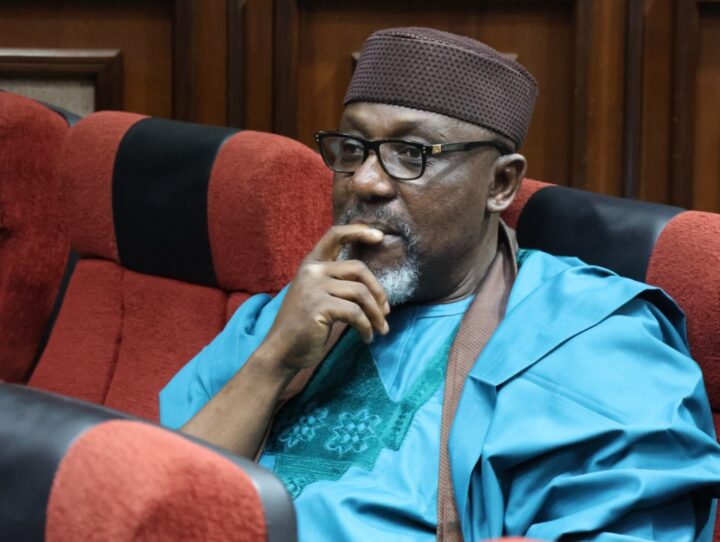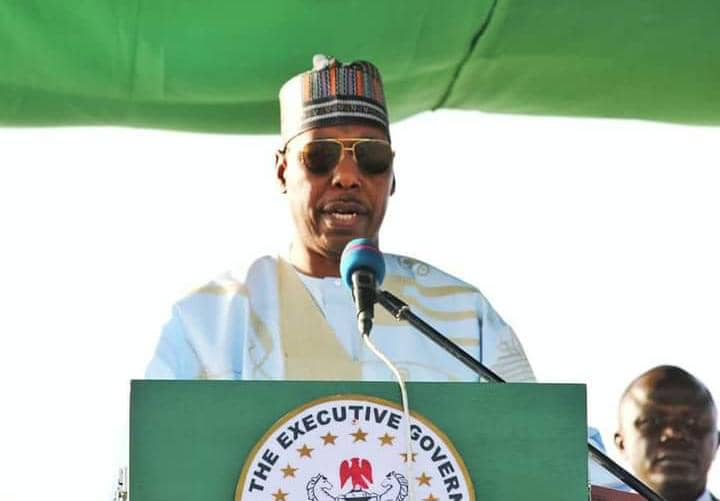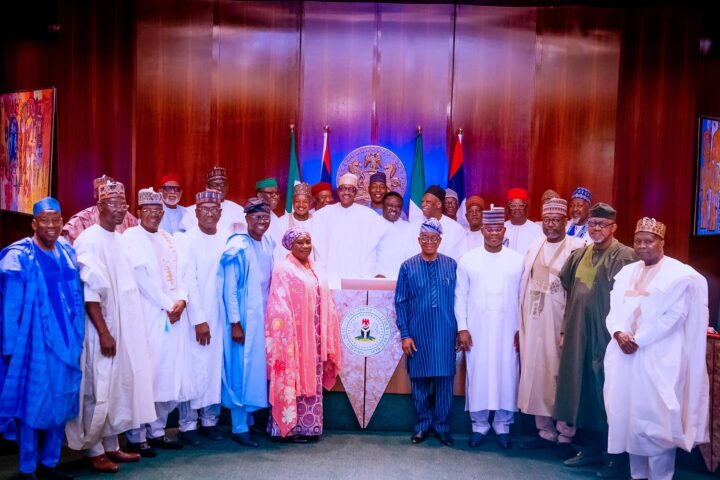Photo: Tolani Alli
On November 18, 2021, President Muhammadu Buhari appended his signature on the climate change bill making it an act.
The bill was sent to Buhari for assent two weeks before the United Nations climate change conference – COP26 — in Glasgow after it had passed the second and third readings at the house of representatives and senate.
However, the president put pen to paper five days after COP26 as a way of solidifying Nigeria’s pledges and its commitments to the Paris agreement.
Also at the conference, the president had among other things said the country will reach net-zero emissions by 2060 and that the Climate Change Act will provide a framework for achieving low greenhouse gas emissions, inclusive green growth and sustainable economic development.
Advertisement
After the president’s assent, Sharon Ikeazor, minister of state for the environment, described the development as Nigeria’s “loudest” statement on fighting climate change.
But six months down the line, implementation seems to be dragging on.
In this article, TheCable looks into what the act set out to achieve and the implications of delayed implementation.
Advertisement
THE CLIMATE CHANGE ACT AND ITS PROVISIONS
The bill that would establish the Climate Change Act was introduced in 2018 by the eighth assembly but was declined by the president in 2019 on the grounds of “contentious clauses” which needed to be addressed. The lawmakers revisited the bill and addressed the president’s concerns and this eventually led to its assent.
The act was expected to set the ball rolling, provide a framework for mainstreaming climate change actions as well as establish a national council on climate change that would help in implementing the following:
- Climate change fund: The act provides for a climate change fund that will be managed by the council. This fund will encompass monies appropriated by the national assembly for the running of the council; subventions, grants, donations, emissions trading, carbon tax, fines and charges as well as funding from international organisations, among others. The fund is to, among other things, be used for the running of the council, support climate change advocacy, and information dissemination; and facilitate the conduct of an assessment of climate change impacts on vulnerable communities and populations.
Advertisement
- Carbon budget: The act provides for Nigeria to set an annual carbon budget – the approved quantity of greenhouse gas emissions that is acceptable over a specified time. This is supposed to help the country keep average increases in global temperature within 2°C and pursue efforts to limit the temperature increase to 1.5°C above pre-industrial levels. According to the act, “the pilot carbon budget shall be presented to the federal executive council for approval not later than 12 months from the date that this act is assented to by the president”.
- Climate change action plan: The act also provides for the formulation of a national climate change action plan for the duration of five years. The action plan will serve as a basis for identifying the activities aimed at ensuring that Nigeria’s emissions profile is in line with its carbon budget goals. It will also provide for the review of levels and trends of greenhouse gas emissions (past, current and projected), make provision for research, planning, and action on climate change mitigation and adaptation; and also contain a projection of fiscal and budgetary needs for the execution of climate change projects.
- Climate change education and engagement: The act provides for the integration of climate change into the education curriculum and into various disciplines and subjects across all educational levels. It also provides for public engagement and partnership between the council, citizens and civil society organisations on climate projects, activities and data dissemination.
- Climate solutions: The act provides that the council shall promote and adopt nature-based solutions to reducing greenhouse gas emissions and mitigating climate change issues in Nigeria. The ministry of environment is expected to set up a register for capturing activities geared towards ‘Reducing Emissions from Deforestation and Forest Degradation (REDD+)’. It will also harness the role of conservation and sustainable forest management that serve as carbon stocks and natural solutions to climate change.
‘NON-IMPLEMENTATION LEAVES NIGERIA IN THE DARK’
Advertisement
Experts are of the view that there is a lack of political will to implement the act, despite containing provisions that could set Nigeria on the path to overcoming its climate change challenges.
Hassan Shuaibu, director for environmental studies, University of Abuja, said the non-implementation of the Climate Change Act leaves Nigeria in the dark.
Advertisement
He said the duty now lies with the ministry of environment responsible for the implementation.
He added that if the climate change council is not set up, “we will still be operating in the dark because the arm of the federal ministry of environment that is currently carrying out some of these duties does not have the power that is enshrined in this act when the council is formed. So the implementation of this act is something that Nigerians should push for the government to implement so that the council will come into existence and the activities will take off fully”.
Advertisement
Michael Terungwa, executive director of Global Initiative for Food Security and Ecosystem Preservation (GIFSEP), said Nigeria’s snail-like progress portrays the country negatively, noting that it would inhibit the ability to get funding to tackle climate change challenges.
“If we are asking for climate finance and funding and then we have laws we are not implementing, then it also shows that when the funds come we will also not spend it wisely. It is important that the implementation also begins immediately so that everyone is seeing the seriousness,” he said.
Advertisement
Terungwa is worried that the 2023 elections might overshadow the implementation of the act and also that most of the presidential aspirants are not talking about climate change. He said the annual climate conference has become “a jamboree and an opportunity for people to just travel, get estacodes and participate in the western carnival every November”.
‘TAKE FG TO COURT’
Amid concerns of the elections putting implementation on the back burner, Yahaya Dangana, a legal practitioner, suggests that the federal government should be taken to court and be enforced to implement the law to which it assented.
He said the president needs to be held accountable now and be told that — “this law provided for inauguration, come and inaugurate”.
Dangana advised civil society organisations to work towards securing a mandamus order to compel the government “to discharge his responsibilities”.
Add a comment
